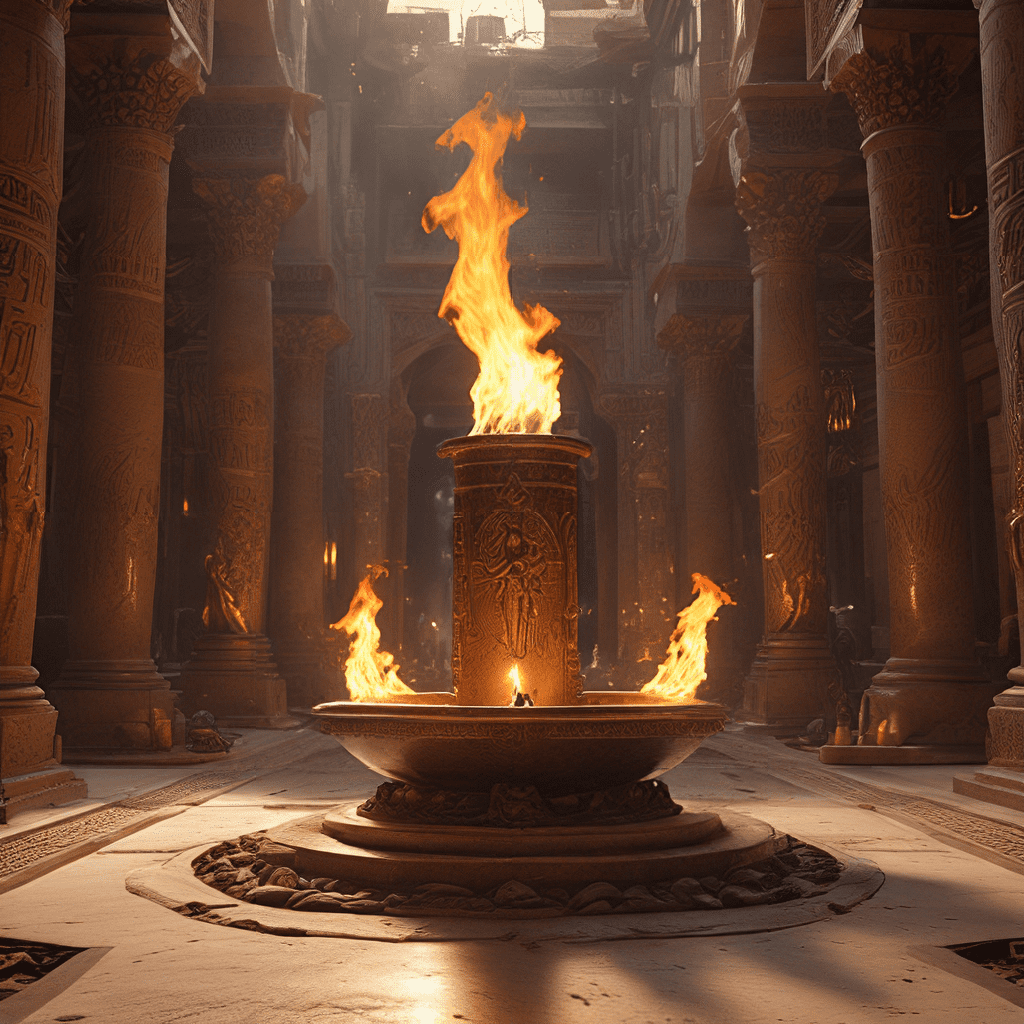The Eternal Flame: Exploring the Egyptian Belief in Immortality
I. Introduction: The Enigma of Life After Death
The ancient Egyptians were deeply fascinated by death and the afterlife. Their belief system centered around the idea of immortality, a concept woven into every aspect of their lives. While modern society often views death as an end, the Egyptians believed it was merely a transition to a new realm, a place where they could continue to exist in some form. The Egyptians envisioned an “Eternal Flame” as a metaphor for this life-force that persisted beyond the physical body. This flame symbolized the continuation of the spirit, representing a vital energy that could transcend the boundaries of death.
II. The Journey to the Afterlife: A Labyrinth of Trials
The Egyptians believed that after death, the soul, known as the “ka,” embarked on a perilous journey through the underworld. This journey was fraught with challenges and trials, and the deceased’s fate in the afterlife depended on their ability to navigate these obstacles successfully. The “Book of the Dead,” a collection of spells and prayers, was a guide for the deceased, offering instructions and protection for the soul’s journey. The Egyptians believed that proper funerary rituals and offerings were essential to ensure the safety and success of the soul’s passage through the underworld. These rituals involved elaborate ceremonies, the mummification of the body, and the placement of carefully selected offerings in the tomb. The Egyptians believed that these actions would provide the deceased with vital resources for the journey and appease the gods who governed the realm of the dead.
III. The Role of the Sun God Ra: The Source of Life and Rebirth
In Egyptian mythology, the sun god Ra played a crucial role in the concept of immortality. Each day, Ra sailed across the sky in his solar barque, bringing life and light to the world. At sunset, he descended into the underworld, where he battled the forces of darkness and chaos. At dawn, Ra emerged victorious, marking a new beginning and symbolizing the cyclical nature of life, death, and rebirth. This journey through the underworld mirrored the soul’s own journey to the afterlife. The Egyptians believed that by aligning themselves with Ra’s power, they could tap into the eternal cycle of life and ensure a place for their souls in the afterlife.
IV. The Divine Tribunal: Weighing the Heart against the Feather of Ma’at
Once the soul reached the underworld, it had to face the judgment of Osiris, the god of the underworld. Osiris presided over a divine tribunal where the heart of the deceased was weighed against the feather of Ma’at, the goddess of truth and cosmic order. The Egyptians believed that moral conduct in life was paramount. If the heart was found to be lighter than the feather, the soul was deemed worthy of entering the afterlife. If not, the deceased would be consumed by the monster Ammit, ensuring a dark and dismal fate. This weighing of the heart underscored the importance of ethical behavior and a commitment to Ma’at, the cosmic order, in securing immortality.
V. The Importance of Mummification: Preserving the Body for the Afterlife
The Egyptians believed that the body was essential for the “ka” to inhabit in the afterlife. They developed the elaborate process of mummification to preserve the body for eternity. This intricate process involved removing the internal organs, drying and treating the body with salt, and wrapping it in linen bandages. The Egyptians also placed amulets and “ushebti” figures in the tomb. These small figurines were believed to act as servants, performing tasks for the deceased in the afterlife, easing their journey and ensuring their comfort. The Egyptians believed that by preserving the body, they could safeguard the “ka” and ensure its continued existence in the afterlife.
VI. The Afterlife in Egyptian Mythology: A Realm of Eternal Bliss
The Egyptians envisioned the afterlife as a paradise called “Aaru,” a realm of eternal bliss, abundant food, and everlasting joy. They believed that the souls of the virtuous would spend eternity in this paradise, participating in activities like fishing, hunting, and feasting with the gods. The deceased would have access to a variety of pleasures and rewards, such as beautiful gardens, flowing rivers, and eternal life. The soul, called the “ba,” was thought to be capable of leaving the body and traveling to the realm of the dead. The Egyptians believed that by living a good life, following the principles of Ma’at, and preserving the body, they could secure their place in this paradise and achieve immortality.




